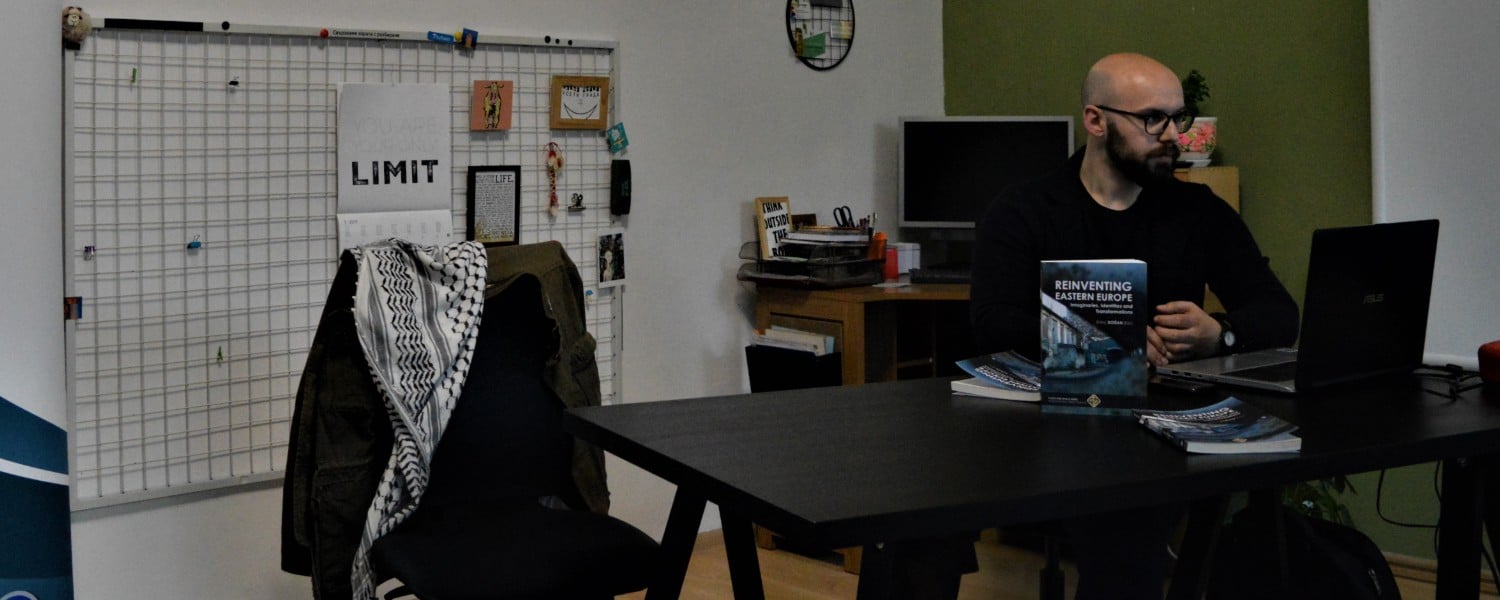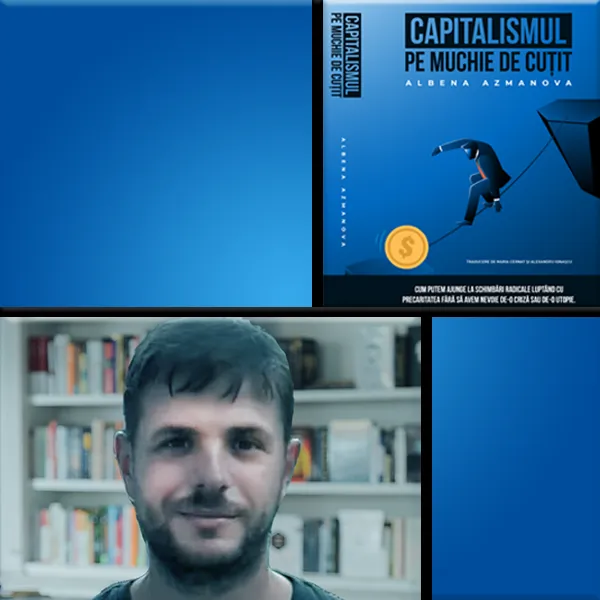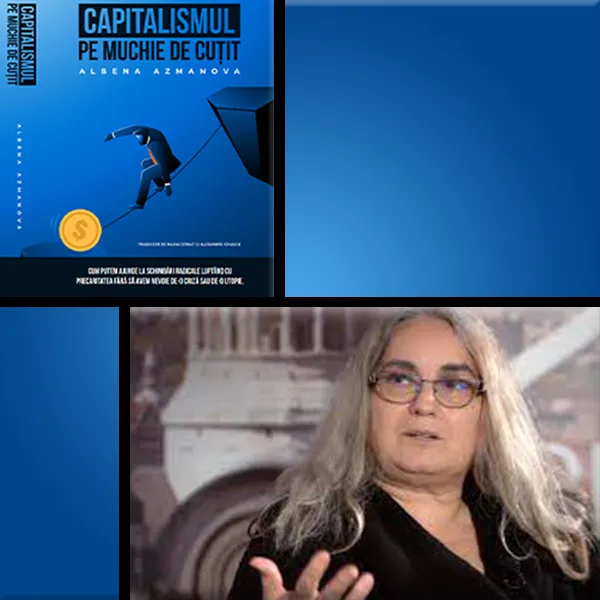Francesco Trupia holds a PhD from Sofia University “St. Kliment Ohridski”. With a background in philosophy, political science, and international relations, he has worked in Bulgaria, Armenia, and Kosovo for various NGOs and research organisations. His research interests lie in identity politics, minority issues, and democratisation in Central and Eastern Europe.
Francesco, you are an Italian from the South and you know well the Bulgarian and Romanian immigrant communities in your part of Italy. They often work in agriculture or for small businesses. What is their relationship with one another and with Italians? How much of this relationship is cooperative and dignified and how much of it is distorted by precarity, stress and abuse?
Since the early 1990s, many Eastern Europeans have fled their countries to look for a better future in Italy. Not only Bulgarians and Romanians, but also many Albanians and Ukrainians compose large communities of expats. At present, we can even talk about third generation Eastern Europeans living in Italy. It is worth paying attention to their societal role within the Italian context. Especially those who work, and have worked, within the third sector – agriculture and other small businesses – remain exposed to labour exploitation and economic uncertainty. The latter stems from a large variety of interlinked international factors and domestic issues that have worsened the general work conditions of the local farmworkers and seasonal workers.
Despite the fact that agriculture in Southern Italy, Sardinia included, represents an important strategic asset for the national economy, the whole sector has had to face the slow and steadily growing disinterest of Italy’s youngest generation. Sons and daughters of the 60s-90s petite bourgeoisie do not see agriculture as a potential sector to invest in. Those who decided to “go back to the fields” are few. EU competitors and international trade relations that Italy has recently established with partners from China and North African countries, among others, have not boosted Italian agriculture. On the contrary, they have paradoxically forced local entrepreneurs to relocate production processes to Eastern Europe. Paradoxically, this happens while many Bulgarians, as well as Romanians and immigrants from Africa, fill the “labour void”. In the last decades, farmworker intra-group dynamics and relatedly, the job market, have changed quite a lot, yet the much-debated “Caporalato” (e.g. gang master system) which has been historically strong in certain regions of Southern Italy, has found fertile soil. Within it, seasonal workers from Romania and Bulgaria, locals and undocumented migrants, asylum seekers and refugees in need of some financial resources to keep moving north, remain the most vulnerable. In Italy, they represent almost 40% of the seasonal workforce, the majority of whom are female fruit pickers and farmworkers. They are, in a few words, constantly exploited by a system, which, not surprisingly to me, is compatible with free market capitalism. Unfairly paid, without any legal protection, forced to work for hours in the heat, with poor sanitary conditions, they are the “most visible invisibles” in Southern Italy. Others, especially female caregivers who work and live in the same house/apartment of the elderly they care for, have a more dignified lifestyle. However, while they are commonly paid for their caregiving, their housework generally remains unpaid.
To what extent do Bulgarians and Romanians in Italy have their own cultural and educational institutions, how much do they manage to organise in labour unions and civic organisations, do they protest or take collective political action? You have lived in Bulgaria, so maybe you can make a comparison between the degree of political and social maturity of people in their homeland and in immigration in Italy…
The second generation of Romanians and Bulgarians have attended public schools and universities, they generally possess a very good command of the Italian language and are able to look for a job and establish their own families. On a cultural level, the distinction between their private and public life remains an important factor. They can learn the mother tongue of their parents at home, keep their family traditions alive and have a circle of friends and relatives.
The public space can be problematic sometimes: While Romanians and Bulgarians do not face problems specifically with Italians, stereotypical images and prejudices continue to be ascribed to them; images which portray their countries of origin as ones of sorrow, migration, poverty and underdevelopment.. All of these distort Italians’ understanding of Bulgaria, Romania and Eastern Europe in general.
On a political level, forms of grassroots activism or collective, bottom-up projects do not win ground among Bulgarians and Romanians. I honestly doubt that Italy’s political landscape can be easily compared with the one in Bulgaria and Romania without deeply considering recent history and political legacy. In Italy, I would not be surprised if Bulgarian and Romanian workers would agree with, or even support and vote for, the League or the Five Star Movement. This is, after all, a phenomenon largely seen in France, Germany and the UK. Political campaigns and projects of workers’ mobilisation initiated by the dozens of leftist parties, organisations and unions have completely lost their grip within the working class in the last two decades – regardless of the nationality and social group a person belongs to. The process of workers’ demobilisation did not start from a malignant discursive strategy of anti-migration campaigns and strong criticism against EU bureaucrats, as one could easily assume. It has a much longer tradition of failure against which the Italian Left and diverse trade unions have done very little. In this regard, the most paradoxical issue to deal with is that seasonal workers are aware of their irregular status, of the labour exploitation they suffer along with the everyday risks and uncertainty. Yet, this exploitative condition pays off: Many continue to send money back home, others can guarantee their kids’ education, others hope to settle down and have better prospects than in their countries of origin.
In 2017 The Guardian published an in-depth article on Romanian immigrant working women in Sicily and the sexual abuse which they were subjected to. The article revealed that this abuse had been going on for years, but for various reasons it was not reported to the police and almost none of these women’s Italian employers were sentenced for the crimes they committed. What reactions followed after this article, by state institutions, civic society and the immigrant communities? What is the present state of this problem?
That report in 2017 brought light to a very well-known system of labour exploitation and the deterioration of labour rights in the field of agriculture, which remains deeply rooted in, and interlinked with, a set of old-fashioned local rules and local business interests. In Sicily and Calabria, in the Ragusa province and Gioia Tauro and Rosarno, this is just the reality local and seasonal workers live with. The so-called “Caporalato” is a form of illegal hiring and exploitation of farm workers through an intermediary who coordinates and navigates in between labour and property relations. At the same time, long hours and low wages are only the surface of such phenomena.
Similar to Dante’s Inferno, underneath there are many other concentric circles to go through, leading to quasi slavery forms in workers’ everyday life. Moreover, many undocumented female migrants experience sexual slavery in the form of nightly forced prostitution. Others are mistreated daily and often sexually abused by the “caporali” (intermediary figures). Their everyday life is organised and lived on the margin of the rural societies: living in barracks without a good level of hygiene, electricity, or basic furniture. Relatedly, what remains the most controversial aspect of such an exploitative system, is that a large majority of farmworkers justify and thereby legitimize the “capolarato”. This remains the only opportunity they can benefit from. To a great extent, here we touch upon a paradox-within-a-paradox: Should we speak up on behalf of exploited farmworkers, regardless of the fact that they seem reluctant? Or, on the contrary, should we wait for them to speak up, in spite of the known fact that they do not have the instruments to do so?
We have already seen how Austria recently confirmed hiring 200 nurses from Sofia, Bulgaria, and Timișoara, Romania. This example not only unmasks the complete unpreparedness of Europe’s richest states to properly tackle and prevent today’s crisis, but it also shows how certain segments of the migratory workforce are exploited even before they begin working. They are, in the end, at the mercy of capital’s demand and its ebb and flow on the global market.
Due to the COVID-19 outbreak, Giorgio Gori, the mayor of Bergamo, and Teresa Bellanova, the Minister of Agriculture as well as a former farmworker, expressed their concerns about travel restrictions that might have a negative impact on Italian agriculture, since the seasonal wave of farmworkers from Eastern Europe could not go to the fields. At present, the Agriculture Minister is trying to convince the government coalition to pass a law aimed at regulating the status of seasonal workers and their labour rights. I am not super enthusiastic about it, honestly speaking, as I see it as another appropriation of extra profits through another wave of seasonal workers.
Rather than dealing with, and perhaps being happy about, a potential legal recognition of seasonal workers and local farmwokers, in my opinion there is a burning question to raise: Why were regulations for seasonal workers and their labour rights put on hold for such a long period of time, only to be discussed in the face of a profound economic crisis that is yet to come and that will surely reconfigure work relations and production processes? Granted, locals and seasonal workers from Romania, Bulgaria and other countries can (arguably) see their labour rights recognised and protected, why was this not done earlier? Are farmworkers, peasants, fruit pickers, and seasonal workers worthy of recognition, or do they only represent a tool for a significant sector such as agriculture in times of profound crisis?
Italy’s Northern region is severely affected by the coronavirus pandemic. What is the gravity of the coronavirus outbreak in the South? How affected by the pandemic are vulnerable populations, such as Bulgarian and Romanian immigrants, Italian socially deprived groups, migrants from Africa, etc. – not only in terms of health, but also socially and economically? To what extent are Italy’s social-economic measures sufficient for supporting these vulnerable categories?
In general, Southern regions have had far fewer cases than the Northern regions, Lombardy above all. It seems possible to (re-)imagine the summer season in Southern Italy, surely not as it was planned but slightly better than it was thought a few weeks ago. It is true that Italy is commonly associated with its geographical division. No one can deny it, not even Southern Italians, and the COVID-19 crisis has highlighted, once again, the division between the industrial and innovative North, and the traditional and “backward” South. A few days ago, Vittorio Feltri, editor-in-chief of “Libero”, a very well-known newspaper in North Italy, commented on the situation in Southern Italy by pointing out the “societal inferiority” of Southern Italians. Antonio Gramsci, among others, wrote extensively about the “Southern Question”; everyone knows how such “backwardness” has been historically ascribed to Southern Italians in order to justify profound structural and economic differences.
Nevertheless, the state of emergency not only represents a crisis in itself, but it is also leading each of us in a new social direction that we are forced to accept for the future of our everyday life. As a matter of fact, the post-pandemic reorganisation of work relations and labour will leave room for new forms of subordination and the political domestication of a large variety of social groups. While social distancing will restrict more and more places of confrontation and political disputes in the name of human security, local and seasonal workers, who are usually hired on the black market and kept poorly skilled, are expected more than others to bear the brunt of losses, human marginalisation, and social exclusion. Capitalism-led global society will regenerate itself through new methods of production and a revaluation of labour skills and services, which will be deemed “essential” after transitioning to diverse forms of “smart working”. How many will be left behind? In Italy, the COVID-19 crisis has shed light on the multifaceted layering of subaltern social groups, whose vulnerability to exploitation in the “post-pandemic season” could be even worse than within the already-existing mechanisms of labour exploitation. Once again, a combination of racial, national, and cultural factors will be utilized to negate labour rights and thus reinforce new relations of subordination. For example, typical of Southern Italy, patriarchal societies will keep women less able than men to have power in decision-making, agriculture employees will remain subaltern to their employers, and so on.
Another direction of your research activities has been intercultural relations and you have researched Islam in contemporary South-Eastern Europe. There has been a lot of demonising of Islam going on in the West. What is not understood well about Islam in Europe? Do we need to build a wall between our world and the Middle East or on the contrary, does it make sense to be open and to engage it?
Those who demonise Islam do not have a clue about it. Their understanding of Islam is mostly based on stereotypical images formed with regard to Islamist terrorism and different forms of radicalisation that are, unfortunately, widespread in Italy as well as France and Germany. The COVID-19 crisis has rapidly deleted “Islam” and “terrorism” from the political agenda and discursive strategies of a large variety of political parties in Europe and beyond. Is terrorism no longer a security concern for the West?
In Western Europe in general, and Italy in particular, politicians talk about “Europe” without understanding that in Southeastern countries Muslims are members of national minorities. Their anti-immigration rhetoric does not target these segments of Southeastern European societies, because they already live in their own countries of origin. Therefore, there is no need for walls or fortresses whatsoever. It has been proven that marginalization triggers radicalization, especially in countries where Muslim communities can represent a target-group. It happened in 2014 in Pazardzhik, for example. It might happen in the European Union if we fail to fully integrate Muslim communities into the European project. Why should Bulgaria need to fully recognise minority and religious rights and Italy shouldn’t? As long as Europe fails to integrate Muslim communities into its Europeanisation, such a project will not succeed.
Photo: Francesco Trupia in Plovdiv, Bulgaria (photo: Francesco Trupia)
The Barricade is an independent platform, which is supported financially by its readers. Become one of them! If you have enjoyed reading this article, support The Barricade’s existence! We need you! See how you can help – here!











